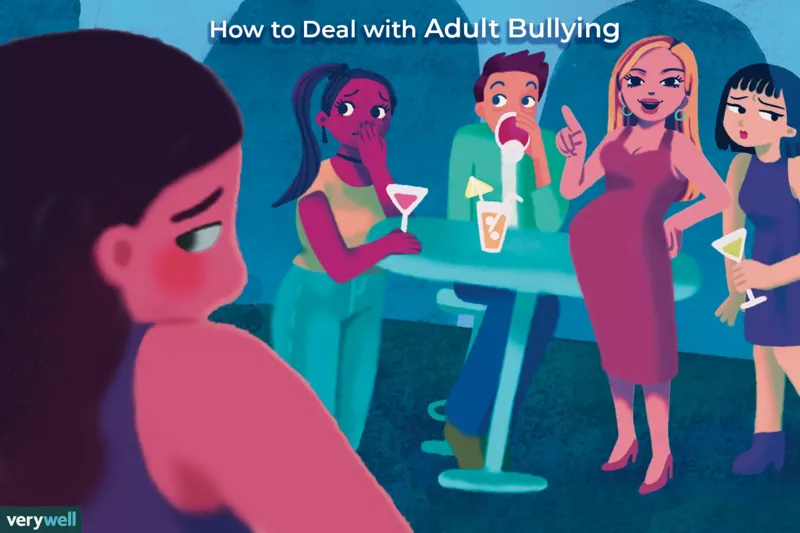Are you the "baby" of your family? If so, you might find yourself identifying with the concept of youngest child syndrome. This informal term refers to the distinct characteristics and personality traits often associated with being the lastborn in a family. While not an official diagnosis, understanding how youngest child syndrome shapes development can offer valuable insights into personality, career paths, and family dynamics, often leading to traits like entrepreneurship and a propensity for risk-taking. Scientific research, while cautious about definitive labels, points to fascinating patterns in how birth order influences development and individual growth.
Key Takeaways
- Youngest children frequently display traits like risk-taking and an entrepreneurial spirit, although individual personalities are complex.
- Parenting styles and evolving family dynamics significantly affect how youngest child syndrome shapes development, but birth order is not the sole determinant of personality.
- Open communication within the family and an emphasis on individual strengths are crucial coping strategies for both youngest children and their parents.
- Research in 2025 continues to explore the nuanced ways birth order impacts intelligence and social skills, often highlighting small, non-deterministic effects.
1. Understanding Youngest Child Syndrome: Problem & Perception
The concept of "youngest child syndrome" is widely recognized in popular culture, often conjuring images of charming, attention-seeking individuals who are natural risk-takers. This informal label describes the collection of characteristics and behaviors commonly attributed to the last-born child in a family unit. While not a clinical diagnosis, the perceived traits associated with being the youngest have been the subject of both anecdotal observation and scientific inquiry for decades. Many people readily identify with the stereotypes, seeing themselves or their loved ones fitting neatly into the "baby of the family" mold. This collective perception often highlights traits such as a strong desire for attention, a playful nature, and sometimes a reputation for being "spoiled."
However, this popular understanding also presents a challenge. The problem lies in the potential for oversimplification and the risk of pigeonholing individuals based solely on their birth order. While some studies suggest tendencies, personality psychologist Julia Rohrer notes that when scientists examine adult personality across major dimensions like emotional stability or extraversion, systematic differences between firstborns, middle children, and lastborns are often minimal (Rohrer, 2015). This suggests that while birth order can certainly contribute to certain inclinations, it doesn't deterministically define a person's entire character. Understanding how youngest child syndrome shapes development requires a nuanced look beyond mere stereotypes, acknowledging the intricate interplay of genetics, environment, and individual experiences. The key is to recognize patterns without allowing them to become rigid labels that limit a child's potential or a parent's approach.
2. The Science Behind Birth Order: Challenging Stereotypes
While popular belief often paints a vivid picture of the youngest child, scientific research offers a more complex and often surprising perspective on how birth order influences development. The notion that youngest child syndrome shapes development in predictable ways, leading to universal traits, is frequently challenged by rigorous studies. For instance, while stereotypes suggest youngest children are more prone to being spoiled, research consistently finds that personality traits aren't solely defined by birth order. Instead, scientists look for subtle, average differences across large populations rather than absolute rules for individuals.
One of the most robust findings concerns risk-taking and entrepreneurial spirit. Studies, including one from the University of Birmingham and the University of Reading, analyzing data from over 17,000 individuals, revealed that youngest children are nearly 50% more likely to venture into self-employment compared to their non-self-employed siblings (Liang & Greene, 2016). This suggests a concrete way birth order influences development in terms of career choices and an inclination towards innovation. Another intriguing finding challenges the idea of the "troubled" youngest child; a study in Frontiers in Psychiatry found that youngest children actually had the lowest rates of mental health challenges, including emotional, conduct, and attention problems (Fukuya et al., 2021). This positive impact on well-being highlights a less discussed aspect of how youngest child syndrome shapes development. Even in terms of intelligence, while firstborns often show a slight average advantage in large-scale studies in Western societies, these effects are generally small and not deterministic. Julia Rohrer emphasizes that "in any given family, the youngest child may actually be the smartest," underscoring that individual variation far outweighs population averages. The scientific consensus in 2025 leans towards acknowledging birth order as one of many contributing factors, rather than a definitive predictor, in how personality and life paths unfold (Harvard, 2024).
3. Psychological Impact and Evolving Family Dynamics
The psychological impact of being the youngest child is profoundly intertwined with the evolving dynamics within the family unit. From birth, the youngest child enters a pre-existing social structure, often with older siblings already establishing their roles. This unique position significantly shapes development, influencing everything from self-perception to how they interact with the world. Louis J. Kraus, MD, director of child and adolescent psychiatry at Rush University, points out that while genetics play a role, how children are raised also has substantial psychological effects. He cautions against formal labeling, emphasizing that these effects become less obvious as children mature.
The relationship with older siblings is a cornerstone of this dynamic. It's common for older siblings to take on more helpful or even "parentified" roles, while the youngest may develop a more animated, attention-seeking demeanor. Dr. Kraus suggests that the youngest might exhibit a "more immature quality... a little closer to mom than their older sibling counterparts." This dynamic, he notes, is frequently observed in families, even without definitive scientific research to fully support it. The constant presence of older siblings can mean the youngest learns to negotiate, observe, and adapt, often developing strong social skills and a knack for persuasion. However, it can also lead to feelings of being babied or not taken seriously, impacting their self-esteem and independence. The way these early interactions unfold is a critical part of how youngest child syndrome shapes development, laying groundwork for future relationships and coping mechanisms.
Parenting styles also naturally shift with each child. Firstborns often experience more intense, "by the book" parenting, while subsequent children benefit from parents who are more relaxed and experienced. This less rigid approach can foster a sense of freedom and creativity in the youngest, but it can also lead to them receiving somewhat less direct parental attention in their earliest years, as parents are juggling multiple children. However, this dynamic often reverses later. As older siblings leave home, the youngest may experience a period of "exclusive access" to parents, potentially leading to a unique bond and focused attention that balances earlier experiences. This continuous evolution of family roles and parental engagement is central to understanding the psychological nuances of the youngest child's journey.
4. Navigating Common Misconceptions and Potential Pitfalls
While the romanticized image of the "charming rebel" often defines the youngest child, it's crucial to navigate common misconceptions and understand potential pitfalls associated with this birth order position. The most pervasive stereotype is that of the "spoiled" child. While parents might indeed be more lenient with their lastborn, particularly after the rigors of raising older children, this leniency doesn't automatically equate to being spoiled. Instead, it often reflects a more relaxed, confident parenting style developed over time. However, this perception can become a pitfall if the youngest child internalizes it, leading to a sense of entitlement or a lack of accountability. It's a delicate balance for parents to strike: providing support without fostering dependency, and allowing freedom without encouraging irresponsibility.
Another challenge lies in the potential for the youngest child to feel perpetually "the baby" or underestimated, even into adulthood. This can be a negative aspect of how youngest child syndrome shapes development, as older siblings and even parents may unconsciously infantilize them, hindering their opportunities for responsibility and independence. Julia Rohrer notes that while age-related personality differences tend to disappear with maturity, these family dynamics can keep the "least mature" personality alive within the family context. For example, an older sibling might consistently take on the "responsible" role during family gatherings, even if the youngest is highly competent in other areas of their life. This can lead to frustration and a struggle for recognition, requiring the youngest to actively assert their capabilities.
Furthermore, while youngest children often display resilience, there can be a subtle disadvantage in terms of early parental attention. In families with multiple children, the youngest may initially "share" parental attention more broadly than a firstborn. This isn't necessarily a deficit, but it means their early needs might be met differently. While middle children are often cited as having the largest disadvantage in parental attention, the unique position of the youngest still means navigating a different landscape. The key is recognizing these potential pitfalls not as deterministic flaws, but as areas where conscious effort from both parents and the youngest child can foster healthy development and ensure that the positive aspects of how youngest child syndrome shapes development are maximized, rather than overshadowed by unhelpful stereotypes.
5. The Lifelong Journey: Birth Order Influence Across the Lifespan
The influence of birth order is not static; it represents a lifelong journey, with its impact evolving significantly across different developmental stages. Understanding this "timeline" of how youngest child syndrome shapes development provides a more comprehensive view of its long-term effects. In early childhood, the youngest often benefits from a less anxious parenting style, as parents have gained experience with their older children. This can foster a sense of ease and confidence, but also, as Dr. Kraus suggests, potentially a slightly more "infantilized" dynamic within the family. During these formative years, the youngest often learns through observation and imitation, absorbing lessons from their siblings' successes and failures, which can contribute to their noted resilience and adaptability.
As the youngest child moves into adolescence, the dynamics continue to shift. They may strive harder to carve out their own identity, distinct from their older siblings. This push for individuality can manifest in increased risk-taking or a strong drive for independence, particularly if they feel overshadowed or stereotyped within the family unit. The "entrepreneurial mindset" often associated with youngest children can begin to solidify during these years, as they experiment with different interests and seek unique avenues for self-expression. This period can also be a time of both challenge and opportunity: they might feel the pressure to "catch up" to older siblings' achievements, or conversely, find freedom in not having to be the trailblazer.
In adulthood, the direct influence of birth order on personality traits tends to diminish, as individuals forge their own paths, careers, and independent relationships. Julia Rohrer's research indicates that systematic personality differences largely disappear in adulthood. However, the family context can keep certain birth order roles alive. The "responsible" older sibling and the "charming" youngest might still play those parts during family gatherings, even if their lives outside the family bear no resemblance to these archetypes. For example, a youngest sibling who was once seen as the family's free spirit might become a highly successful CEO, yet still find themselves playfully teased by older siblings about their youthful antics. The long-term impact of how youngest child syndrome shapes development is less about fixed traits and more about the enduring patterns of interaction and perception within the original family system, which individuals learn to navigate and, ultimately, transcend. This ongoing evolution underscores the adaptive nature of human personality and the complex interplay of early experiences with later life choices.
6. Empowering Youngest Children and Parents: Practical Solutions
Navigating the unique challenges and embracing the advantages of being the youngest child requires thoughtful strategies from both children and parents. Understanding how youngest child syndrome shapes development is the first step towards fostering a supportive environment that encourages growth and individuality. For parents, the key is conscious effort to counteract potential pitfalls and maximize strengths. Louis J. Kraus advises parents to avoid common traps: do not burden the oldest with excessive responsibility, do not ignore the middle child, and critically, do not infantilize the youngest. The goal is equitable love and support, recognizing that each child possesses a distinct personality and responds to their environment differently.
Parents should prioritize open communication, creating a safe space where the youngest child feels heard and valued. If a youngest child expresses feelings of being left out or misunderstood, these concerns should be addressed directly and empathetically. Encouraging their independence and offering age-appropriate responsibilities can help them feel competent and capable, rather than perpetually "the baby." For instance, assigning them unique household chores or allowing them to make certain decisions empowers them. Recognizing and celebrating their individual achievements, distinct from their siblings, is also vital. This includes acknowledging their unique talents, whether it's their artistic flair, problem-solving skills, or social charisma, reinforcing that their contribution to the family is valuable.
For youngest children, particularly adults reflecting on their upbringing, the solution lies in acceptance and self-empowerment. It's crucial to understand that while early family dynamics played a role, they do not have to define one's entire adult life. Embrace your unique qualities and strengths, viewing them as assets rather than burdens. For example, your innate risk-taking tendencies, often associated with how youngest child syndrome shapes development, could be channeled into entrepreneurial ventures or creative pursuits. Celebrities like Zooey Deschanel, Jake Gyllenhaal, Hilary Duff, and Harry Styles are all youngest children who have leveraged their unique traits to achieve success. If past family dynamics continue to cause distress, seeking guidance from a mental health professional specializing in family therapy can provide invaluable tools for processing these experiences and moving forward. Ultimately, the aim is to leverage the insights gained from understanding birth order not as a limitation, but as a foundation for personal growth and self-actualization.
7. Frequently Asked Questions About Youngest Child Development
What is youngest child syndrome, and is it a real diagnosis?
Youngest child syndrome refers to a collection of personality traits and characteristics commonly associated with being the last-born child in a family. It is not an official medical or psychological diagnosis. Instead, it's a concept used to discuss observed patterns in personality and behavior, often influenced by family dynamics and parenting styles.
How does being the youngest child typically influence personality?
Youngest children are often characterized as risk-takers, entrepreneurs, resilient, and prosocial. They may also be perceived as charming, attention-seeking, and sometimes "spoiled." These traits emerge from their unique position within the family structure, learning from older siblings, and experiencing more relaxed parenting. This is a core aspect of how youngest child syndrome shapes development.
Do youngest children get less attention from their parents?
In early years, youngest children might share parental attention with older siblings, potentially receiving less direct one-on-one time than a firstborn. However, as older siblings move out, the youngest often experiences a period of "exclusive access" to parents, potentially balancing out earlier dynamics. This evolving attention pattern significantly impacts how youngest child syndrome shapes development.
Are youngest children generally smarter or less intelligent than their siblings?
Research generally suggests that firstborns tend to have a slight average advantage in intelligence across large populations. However, these effects are small and not deterministic. In any given family, the youngest child can certainly be the smartest. Individual intelligence is influenced by many factors beyond birth order.
How can parents best support their youngest child's development?
Parents can best support their youngest child by avoiding infantilization, encouraging independence, and fostering open communication. Treating all children equally, celebrating individual strengths, and providing age-appropriate responsibilities are crucial. If struggles arise, seeking family therapy can provide valuable guidance.
Can the effects of being the youngest child change over time?
Yes, the effects of birth order are not static. While early family dynamics can influence personality development, these influences often diminish in adulthood as individuals form their own identities and relationships outside the family. However, certain roles or perceptions might persist within the family context during gatherings. This dynamic illustrates how youngest child syndrome shapes development across the lifespan.












